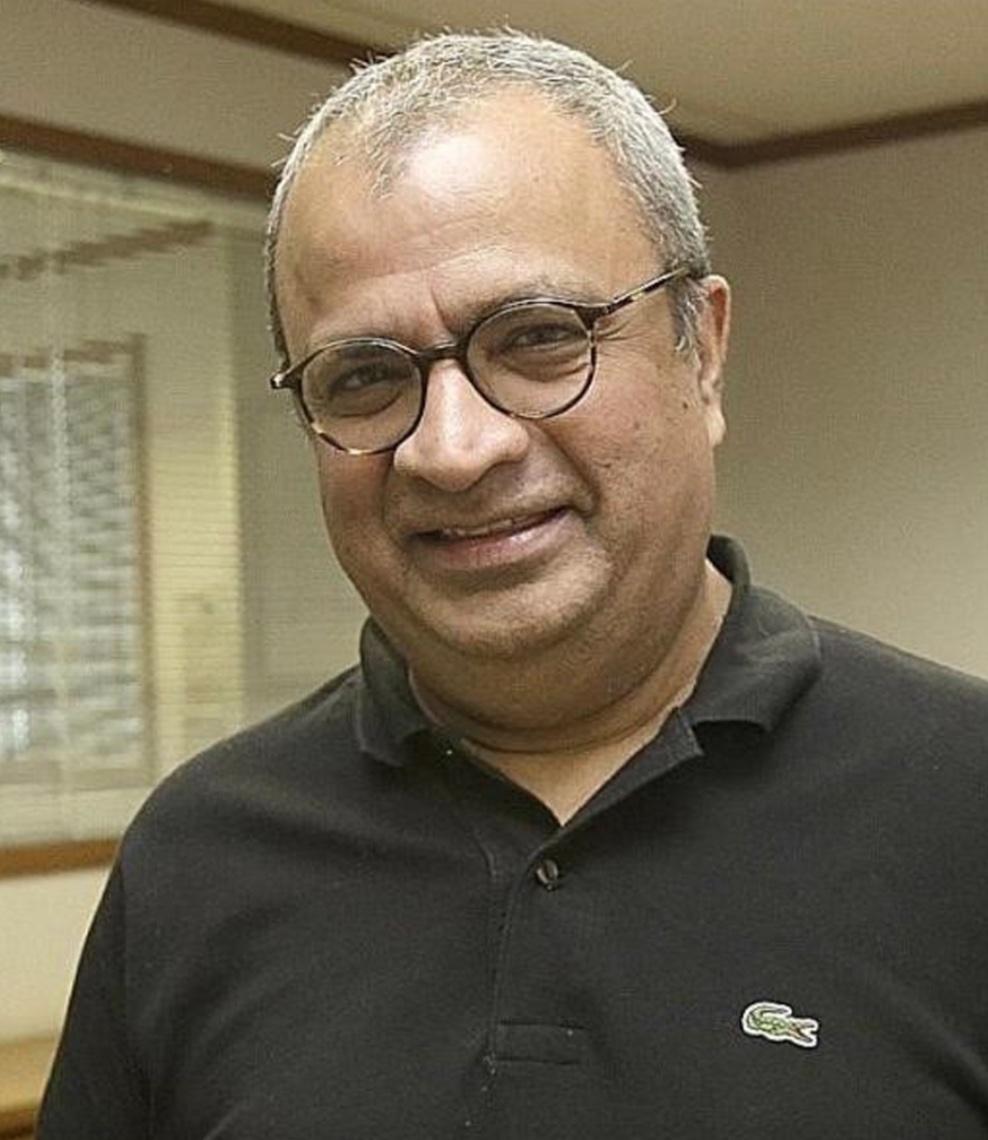
For over seven decades, Asian countries have steered their way through all kinds of difficulties and managed to emerge stronger. Remarkably high rates of economic growth, strong trade and investment and sound development policies have all contributed to a marked improvement in the quality of life of their citizens.
Asia has progressed much faster than people had expected. Its rising power resonates to the point that the World Economic Forum (WEF) was moved to declare: "In the nineteenth century, the world was Europeanised. In the twentieth century, it was Americanised. Now, it is being Asianised."
According to the WEF, Asia outperformed the rest of the world in 2020 in terms of gross domestic product (GDP) growth. By 2030, the region is forecast to account for approximately 60% of all economic growth worldwide.
The economies of emerging and developing Asia are projected to grow by 8.6% in 2021, compared to a 6% global projection, according to the latest World Economic Outlook from the International Monetary Fund (IMF). India tops the table with an expected growth of 12.5%. But that comes after a 7.3% contraction in 2020, so the Indian economy -- and those of many others -- will still be smaller than it was before the pandemic began.
The IMF forecasts that the Asean-5 economies -- Indonesia, Malaysia, the Philippines, Singapore and Thailand -- will expand by 4.9%, although this too could change depending on how the current severe wave of Covid infections plays out.
In any case, the notion of the "Asian century" with persistent growth in the future appears to be less certain now than it once was. According to experts, Asia might not be able to retain its dominance after having outcompeted in the world for decades.
"True, the region has been the greatest show on earth for several decades and Asia's openness to trade and investment aligned perfectly with the tailwinds of globalisation," said Vasuki Shastry, an associate fellow in the Asia-Pacific programme of Chatham House, the international affairs think-tank headquartered in London.
Despite its impressive contributions, Asia's hard-earned successes and strengths have now been shaken and stirred, both by the pandemic and pre-pandemic trends such as the US–China trade war, he noted.

And while Asia's reckoning may have been a subject of speculation in some circles before the pandemic, Covid-19 has made that inevitable, added Mr Shastry.
The Asian Development Bank (ADB) recently cut its economic growth projection for developing Asia to 7.2% this year, compared with its 7.3% forecast in April, as renewed coronavirus outbreaks slow the recovery in some economies.
Thailand, for example, saw gross domestic product (GDP) contract by 2.6% year-on-year in the first quarter as private consumption and service exports -- chiefly inbound tourism -- continued to decline. This was partly offset by increases in government spending and expanded merchandise exports and private investment.
"A key risk to growth is a third wave of Covid-19 starting in April," the Manila-based bank said in a statement issued last Tuesday.
After expanding in the first quarter, indicators for private consumption and investment in Thailand subsequently dropped, particularly for machinery and equipment. Meanwhile, international travel restrictions have kept tourism weak. International arrivals in the first five months of the year fell by 99% from the same period last year to only 34,753. Consequently, the ADB has downgraded its GDP projection to 2% from 3% forecast earlier, and revised up its 2022 forecast to 4.9% from 4.5%.
Speaking at a recent virtual forum hosted by the East-West Center in Washington, Mr Shastry offered an exhaustive list of factors that will retard Asia's prospects. He also outlines them at length in a new book bearing the provocative title Has Asia Lost It?: Dynamic Past, Turbulent Future.
His views were echoed by Prakash Loungani, assistant director of the Independent Evaluation Office at the IMF, who said that the roaring rivalry for supremacy between the US and China as well as globalisation are threatening Asia's regional security.

"Kim Jong-un of North Korea is Asia's youngest leader and that's not quite a compliment at all," says Vasuki Shastry, associate fellow in the Asia-Pacific programme of Chatham House. SUPPLIED
REALITY CHECK
Most experts trace the start to the Asian miracle to Japan's remarkable transformation after World War II, followed by rapid industrialisation among the Asian Tigers starting in the early 1960s. With the rise of the two giants -- China and India -- in the late 1990s, the region has continued to flourish, with the Southeast Asian "tiger cub economies" coming to the fore at the dawn of the 21st century.
The positive image of Asia was also reinforced by the new "Washington Consensus", which spread the belief that Asia has arrived and could do no wrong. Asia, it said, would dominate and lead the global economy, said Mr Shastry.
Asia has made a substantial contributions to global economic growth and much of it has been driven by China, he said, adding that India has been a big participant until stumbling very recently before the pandemic. People are waiting to see whether India can return to its trajectory of high growth.
But after decades of relative stability, Asia's sound economic model is facing a number of headwinds and fault lines throughout the region. In his book, Mr Shastry discusses some of Asia's unpleasant truths, including the incompetence of political leaders, rising inequality, a grasping billionaire class, internal insurgencies, oligarchy, gender disparity and climate distress, among many others.
What is interesting about Mr Shastry's book is that it takes seriously some of the challenges confronting Asia and provides a holistic look at the region -- both its achievements and the hurdles that lie ahead, said Satu P Limaye, vice-president of the East-West Center and director of its Washington unit.
Economists and academics across the world have acknowledged many concerns about the formidable challenges -- as addressed in Mr Shastry's book -- that Asia needs to overcome in order to remain what the author calls "the greatest economic show on earth".
In their view, Covid-19 has exposed developing Asia's social, political and economic challenges. One of the foremost concerns is that in a region obsessed with high economic growth, inequality has soared and social mobility has stalled.
Mr Shastry said the inequality and the social mobility issues in developing Asia are, indeed, caused by the rise of the billionaire class, adding that it is really startling that a continent like Asia -- both developed and developing nations -- can have 1,147 dollar billionaires, 406 of whom are in China, based on the annual tally compiled by Forbes magazine.
"It's probably easier today to become a billionaire in Asia than it is for a low-income person to get a good job, get good economic opportunities and rise up the economic ladder," he added.
In South Korea, there are 27 chaebols that control much of the economy, and similar concentrations of corporate power can be seen in the rest of the region, said Mr Shastry. So, how do Asian economies erect guardrails against this billionaire class in order to ensure that there is social mobility, equitable income outcomes and a political system built on greater transparency? These are his main concerns.
"As I presented in the book, it is problematic when politics and business are on the same side because it's not very clear whether the public benefits from this," said Mr Shastry.
Mr Loungani said inequality seems to happen regardless of the political system and quality of leadership and it has to do a lot with lack of empathy. In Asia, he says, seems fine to have a billionaire class that is allowed to do what it wants without any regard to the condition of others.
"I thought our Asian values and culture were actually different and I thought of us as being the more empathetic people than people in the West, but 'crazy rich Asians' seem to have less of a sense of responsibility than the billionaire class in the West," he added.
Sayuri Shirai, a professor of Economics at Keio University in Japan, offered forum participants further insights into the disparity seen in Asian societies. Citing data from the World Inequality Database's Gini index -- a measure of the distribution of income across a population -- she pointed out that income inequality in Europe is relatively low, compared to that of Asia (excluding the Middle East). Japan, for instance, is a high-income economy, but still remains a highly unequal society -- it's a reality that many people do not realise, she said.
Income inequality in India between 2000 and 2019 has widened as well, according to Dr Shirai, though she noted improvements in a handful of economies, among them Brunei, Malaysia, the Philippines, Thailand and Vietnam.
Factors contributing to income and asset inequality, she said, include globalisation, technological changes, a declining presence of labour unions, a decline in the progressivity of a tax system, and monetary easing by central banks. The latter effectively places more funds at the disposal of wealthy investors.
Dr Shirai also said there are super-rich people in Asia who don't pay much tax -- which leads to insufficient progressivity. In her view, Asia should think about restoring progressivity in the tax system, as President Joe Biden is trying to do in the United States despite opposition from the Republican Party and many wealthy Americans.

Asian nations need to strive for a more progressive tax system, as US President Joe Biden is trying to do despite opposition from wealthy people, says Sayuri Shirai, professor of Economics at Keio University in Japan. SUPPLIED
STALLED PROSPERITY
Mr Shastry also highlighted the implications of the vast underclass in Asia, and the hundreds of millions of urban migrants who have come from rural areas. India and China, in particular, have a huge army of domestic migrants moving into urban centres.
China has done a much better job in urban development than India. Around 50-55% of the population in Mumbai and Delhi are still living in shantytowns and slums. All of them have come for a better life, but they're not seeing better outcomes. As such, there needs to be a reset in public policy in developing Asia to ensure economic opportunities more clearly, he said.
Moreover, the building of any infrastructure -- whether it be bridges, roads or dams -- is not going to help a person struggling in the shantytown who does not have access to any public services, and this becomes a recipe for social unrest, he added.
Last but not least, Mr Shastry addressed the shortcomings of the political class, saying that the majority of Asian heads of government and heads of state were born in the 1940s and 1950s. "Kim Jong-un of North Korea is Asia's youngest leader and that's not quite a compliment at all," he said.
Asia, he said, has not been able to develop a new political class and a new generation of leaders, so people have to rely on these ageing leaders, many of whom grew up in the radio and telegraph era.
"We should not mistake the fact that the Indian prime minister … has millions of followers on Twitter. Just having a social media account does not necessarily mean you resonate with the concerns of the majority of the population, particularly in large countries," Mr Shastry pointed out.
The IMF's Mr Loungani said that the salient fact about inequality in Asia is the lack of redistribution. Regardless of the growth that Asia will achieve over the next 20 years, if that growth is not more evenly distributed, there will be a potential for great risks to Asia.
"If you look at the share of youth in Asia that are not in employment, education or training, you really have a continent that is really not finding a way to put its youth into giving them a meaningful and productive start in life," he added.
To sum up, rising inequality and a rapacious billionaire class, among Asia's other problems, are homegrown and resolvable. They deserve more attention and the region has to overcome them before victory is reassured, according to Mr Shastry.
In light of the ongoing pressures, Asia is losing its way and the chance at a promising future. However, as Mr Loungani wrote at the end of his review of the book: "Shastry appears unwilling to abandon hope, and one senses that he longs for his prediction for the continent's future to be proved wrong."

"Crazy rich Asians seem to have less of a sense of responsibility than the billionaire class in the west," says Prakash Loungani, assistant director of the IMF Independent Evaluation Office. SUPPLIED